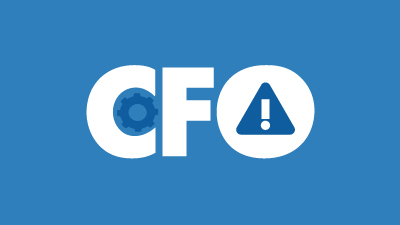How the Role of the Modern CFO Has Changed and How to Adapt

CFOs have traditionally been charged with three main tasks: the company’s books and records, financial reporting, and statutory compliance. Known as number crunchers, CFOs often operated behind the scenes, saying “NO!” to requests based on budgetary concerns. With strategy and decision-making left to the rest of the C-Suite, the CFO was accustomed to signing off on tasks, versus leading the charge.
Today’s environment is vastly different! CFOs in the current business climate are finding they must be agile and limber, as they are taking on roles that never before were assigned to financial leaders. There is a significant shift taking place. While the role of the CFO used to be more of a support function, it is now — and as far into the future that can be seen — driving the direction and success of the organization.
Now and into the foreseeable future, the CFO must bring much more to the plate than those who held that title in the past. To be effective, the CFO must act as partner to the CEO, helping to guide and influence decision making basing the context on the financial model, as well as being a driver of processes, many of which are based on modern technology.
The NEW CFO
Today’s CFO must bring a whole new set of skills and competencies. The day-to-day financial focus is still necessary, but it is also diminishing in proportion to the demands of the current ecosystem.
There are four pillars on which the skillset of the modern CFO rests:
1) Leadership: CFOs today are very much business leaders — so it’s imperative they have the leadership and communication skills that go with the job. Giving advice and counsel, as well as providing a voice of reason is the job of today’s CFO. It’s not unlikely that CFOs are asked to lead group-wide transformation programs; they must be able to translate detailed information into clean, concise, and accessible messaging. The finance function can now be seen hard at work to create a talent pipeline to ensure the right people and leadership skills are in place across the organization.
2) Operations: The company’s business model and industry should direct the CFOs insights. With thorough knowledge of these aspects, the CFO can provide knowledge and an independent perspective to better the business model. By constructively challenging the commercial and operations teams, the CFO ensures that business decisions are grounded in solid financial criteria. Navigating complex data and providing analytics and predictive scenarios that drive action and decision-making help the company to identify opportunities for top-line growth with focus on areas that can drive profit. Looking beyond the norms and into product line/regional profitability analysis and benchmarking helps to compete against industry peers.
3) Controls: Both global and volatile environmental issues are combined with additional regulatory burdens, leaving CFOs tasked with ensuring adequate assessment and mitigation of risk, as well as compliance with applicable regulatory or other legal requirements. Risk is at the front of the concerns of the CFO —as they work through commercial and financial lenses. Managing risk as the business executes its strategies and initiatives, while maintaining strong internal controls is essential to success — it benefits the financial reporting processes.
4) Strategy: The CFO prioritizes and ensures the strategy can be funded. With a financially-based skillset, building predictive modeling, analyzing trends, and incorporating supporting information is supported. The CFO must also be capable of communicating the strategy and progress against it to external stakeholders and investors.
Achieving Success
The best CFO is one who is seasoned in behavioral competencies — being a visible leader in the business, an excellent communicator, and also an influencer, are key. Those who know how to truly drive change in a business will make sure that the finance area is embedded throughout the business, which provides support to key functions, such as: commercial, operations, and manufacturing.
Dedicated finance analysis and support should be attached to the most important functions of the company’s operations. Opening up dialogue between finance and operations helps to foster a better growth flow of data between all areas of the entity. Painting a portrait of the business and translating the data into meaningful commentary, trends, and actions is the job of today’s CFO.
Automation and Technology
Timely and accurate data is critical to the person responsible for financial productivity and decision support. By automating reporting and analytics, there is more time dedicated to forecasting and predictive analysis. For today’s CFO, technology will play a growing role; effectiveness, however, depends on the accuracy, availability, and consistency of the data that is collected.
An integrated technology infrastructure can keep companies from struggling. CFOs who champion digital technology must adapt to new technologies, including ERP implementations and cloud-based solutions. Although CFOs are pressed with leadership wanting more for less, the role of the CFO is now increasingly being assessed in terms of its effectiveness.
Getting Started
With a proven record of providing solutions that can boost business performance while ensuring employees are working at peak efficiency, we have a solid history spanning 25 years in the area of consulting and implementing and supporting business software.
Ready to get started with a modern ERP solution? Read our testimonials, case studies, contact us to learn more or request a demo.


